Do you want to learn more about electrical engineering? And looking for resources to help you understand the field? If so, you’ll need some of the best electrical engineering books to get a deeper understanding of the basics.
In this article, we have listed 9 of the best electrical engineering books for beginners. These books are perfect for those who want to learn about electricity and electronics. They cover a wide range of topics, from basic concepts to more advanced topics.
The 9 Best Electrical Engineering Books for Beginners
John Bird’s Best Overall – Electrical and Electronic Principles and Techniques
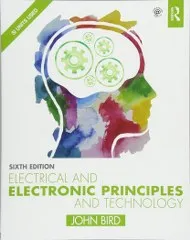
John Bird’s “Electrical and Electronic Principles and Techniques” is our top choice among the best electrical engineering books. This book provides a comprehensive overview of the principles and techniques that support electrical and electronic engineering. The book covers a wide range of topics, from basic electrical theory to semiconductor physics, digital electronics, and communication systems.
Throughout the book, Byrd emphasizes the importance of understanding fundamental principles rather than simply memorizing equations. This approach makes the book an excellent resource for novices in electrical and electronic engineering.
In addition, the book contains numerous examples and self-assessment questions, making it an ideal tool for self-study. Overall, “Electrical and Electronic Principles and Technology” is an essential text for anyone interested in this fascinating field of engineering. It is an ideal reference book for undergraduate and advanced courses.
The book has an important section on engineering mathematics at the beginning, which will come in handy when learning the mathematical expressions of the theory.
Pros.
- You do not need any prior knowledge of the subject to start reading the book.
Disadvantages.
- The book is heavy, so you may not be comfortable carrying it in your backpack.
Best for Beginners – A Beginner’s Guide to Engineering – Electrical Engineering by Mary Ellen Latschar
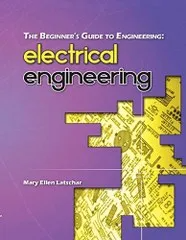
This book on electrical engineering is part of the Beginner’s Guide to Engineering series. If you are a high school student trying to explore electrical engineering as a career prospect, or if you are an established electrical engineer looking to refresh your knowledge of the basics, then this is the book for you.
This book covers a wide range of topics, including circuit design, electronics, and electromagnetism. The authors also focus on the importance of circuits and how to use them to solve real-world problems.
The book is well-written and easy to understand, making it a great resource for those interested in learning about electrical engineering. In addition, the book includes some useful illustrations and diagrams that help explain the concepts covered.
Pros.
- This book uses minimal jargon and is perfect for younger readers.
Disadvantages.
- It has been observed that the Kindle version of the book lacks some diagrams and labels, which causes inconvenience when solving numerical problems.
- Suitable for absolute beginners only
Benjamin Spahic Prior ignorance of electrical engineering
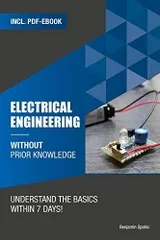
Benjamin Spahic’s Electrical Engineering will help you understand the basics of electrical engineering in a short time. The first part of the book introduces you to the basics of electricity and electronics. It covers topics such as Ohm’s Law, Kirchhoff’s Law, capacitors and inductors, and AC and DC circuits.
The second part of the book explores more advanced topics, such as semiconductor devices, digital electronics, and power systems. You will find concepts explained throughout the book with the help of everyday examples.
Pros.
- Compared to other electrical engineering books, this book is inexpensive.
- With the purchase of the paperback, you will receive a free eBook.
Disadvantages.
- Even if the cover says otherwise, you will need to know the basics of electrical engineering beforehand.
An introduction to electrical engineering explained in easy-to-understand language by Magno Urbano
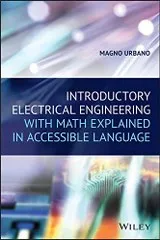
An introduction to electrical engineering with mathematics explained in easy-to-understand language is the perfect electrical engineering book to learn basic and advanced concepts. It not only provides you with theoretical knowledge but also helps with the mathematical understanding of the concepts.
This includes topics such as circuits, generators and motors, alternating currents, electronic devices, and digital electronics. The exercises solved in this book come with inline explanations, which makes understanding easier.
Pros.
- If you want to understand the mathematical explanation of theoretical concepts, this is the best book for you.
Disadvantages.
- As a complete beginner, this book may be expensive for you.
Practical Electrical Engineering by Sergey N. Makarov, Reinhold Ludwig, and Stephen J. Bitar
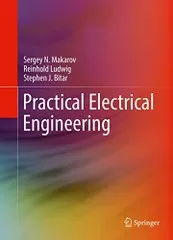
Practical Electrical Engineering focuses on the computational aspects of electrical engineering. In addition to the basics of electrical engineering, this book will introduce you to the basics of computer engineering. The book also includes information on new technologies such as solar and wind energy.
Practical examples and end-of-chapter exercises help you gain a thorough understanding of the material. This book is also useful for students studying robotics, mechanical, biomedical, aerospace, civil, construction, petroleum, and industrial engineering.
Pros.
- This book has a strong emphasis on circuit functions and their applications.
Disadvantages.
- Since this book is for learners from multiple fields, you will need to keep up with the jargon.
James R. Rowland’s Linear Control Systems
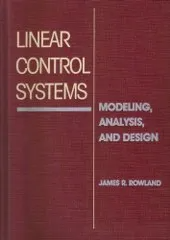
If you want to learn about modeling, analysis, and design in electrical engineering, then this is the book for you. Introductory concepts of optimal control theory are used to understand multiple texts in this book. The book places great emphasis on Byrd’s diagram and Nyquist’s criterion.
It also discusses feedback mechanisms that can be used to stabilize systems, including negative feedback and PID controllers. Buy it with your eyes closed if you want to apply your electrical engineering knowledge to an application.
Pros.
- The latest edition of this book is updated with all new improvements and advances in the field.
Disadvantages.
- This book is only available in hardcover, not for Kindle.
HC Torng’s Switching Circuits
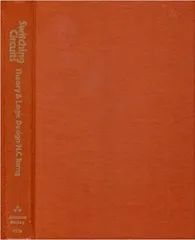
HC Torng’s Switching Circuits is used as an electrical engineering textbook by many leading colleges and universities. It covers the theory and logic design of combinational and sequential switching circuits.
You will also learn about various types of switching circuits, including SR latch circuits, D flip-flops, and counters. Special emphasis is placed on the algorithmic aspects of circuit design, as it is a “machine process” that is difficult for humans to understand.
Pros.
- This book is also useful for computer engineering students.
Disadvantages.
- The set of problems given at the end of each chapter is sometimes difficult to solve.
Circuit Analysis by David E. Johnson, John L. Hilburn, Johnny R. Johnson, and Peter D. Scott
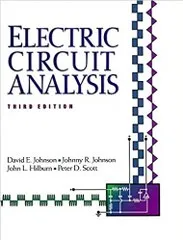
Circuit Analysis is one of the best-selling books in the field of electrical engineering. It covers the fundamentals of circuit theory from both the time and frequency domains.
The authors do an excellent job of explaining complex concepts clearly and concisely, making the material accessible to readers of all backgrounds and experience levels. The book also covers topics such as Ohm’s Law, Kirchhoff’s Law, node and lattice analysis, capacitors and inductors, and AC circuits.
Pros.
- You can use this book as a basic introduction to any branch of electrical engineering.
Disadvantages.
- This book is only available in hardcover and is very expensive.
Paul A. Lynn and Wolfgang Fuerst’s Introduction to Digital Signal Processing for Computer Applications, 2nd Edition
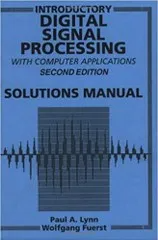
Introductory Digital Signal Processing with Computer Applications was rated as an excellent introductory book by the International Journal of Electrical Engineering Education. In addition to the basic concepts of digital signal processing, the book covers codes for analyzing different types of signals.
Fundamentals of digital signals and systems, time and frequency domain analysis, processing, digital convolution, and discrete and fast Fourier transforms are some of the important concepts included in this book.
Pros.
- Solid data in the book and long-term applicability.
Disadvantages.
- You need a priori knowledge of coding/programming to understand the application-based parts of the book.
Conclusion – Best Electrical Engineering Book
We hope that our list of the best electrical engineering books will help you choose the right one. If you are still confused about the book you should choose, we suggest you try John Bird’s Electrical and Electronic Principles and Techniques. This book will not only clear your electrical basics but will also introduce you to advanced concepts.
Recommended books for electricians
1.10 must-read books for electricians in 2021! Recommended by Master Electricians
2.Best Books For Electricians|Must-read books for those who want to become electricians
3.5 Best Home Electrical Wiring Books for Beginners | Electricians Guide
4.Top And Best Books And Guides For Electricians And Apprentices | Knoweasy Electrician Guide
5.The Best Electrician Books For Beginners: Top Six Sellers In 2022
6.12 Must ReadBooks For Electricians In 2022 Recommended By Master Electricians| Knoweasy Electrician Guide